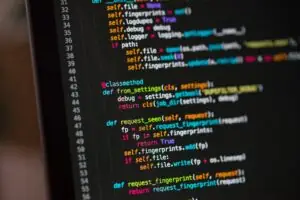In C programming, file handling plays a crucial role when it comes to reading and writing data to and from files. Understanding how to read a file in C is essential for effective data processing and storage. This tutorial will provide a step-by-step guide on file reading in C, covering various techniques and functions involved.
Understanding File Handling in C
File handling in C allows developers to perform various operations on files, such as reading, writing, and modifying data. It enables programs to store data persistently, even after program termination. Reading a file in C is essential for retrieving data stored in files, processing it, and presenting it to users.
Types of Files in C
C supports two main types of files: text files and binary files.
Text Files
Text files are standard .txt files that contain plain text data. They are easily human-readable and editable using simple text editors like Notepad. Text files are suitable for storing non-binary data, such as configuration settings, logs, or user-generated content.
Binary Files
Binary files, on the other hand, store data in a binary format using 0’s and 1’s. They are more efficient for handling large volumes of data and provide better security as they are not easily human-readable. Binary files are commonly used for storing multimedia data, executables, and complex data structures.
File Operations in C
File operations in C involve four major operations: creating a new file, opening an existing file, closing a file, and reading from/writing to a file. These operations are performed using various file handling functions.
Creating a New File
To create a new file in C, the fopen() function is used with the mode ‘w’ (write). If the file already exists, its contents will be overwritten. If not, a new file will be created with the specified name.
FILE *filePtr;
filePtr = fopen("newfile.txt", "w");
if (filePtr == NULL) {
printf("Error creating the file!");
}Opening an Existing File
To open an existing file for reading or writing, the fopen() function is used with the appropriate mode. For example, to open a text file for reading, the mode ‘r’ (read) is used.
FILE *filePtr;
filePtr = fopen("data.txt", "r");
if (filePtr == NULL) {
printf("Error opening the file!");
}Closing a File
After performing file operations, it’s essential to close the file using the fclose() function. Closing a file releases the resources associated with the file and ensures that the data is properly saved.
FILE *filePtr;
// File operations here...
fclose(filePtr);Reading from a Text File
Reading from a text file in C is accomplished using the fscanf() function. This function reads formatted data from the file and stores it in variables specified by the user.
FILE *filePtr;
filePtr = fopen("data.txt", "r");
if (filePtr == NULL) {
printf("Error opening the file!");
} else {
int num;
fscanf(filePtr, "%d", &num);
printf("Read value: %d", num);
fclose(filePtr);
}Writing to a Text File
Writing to a text file in C can be done using the fprintf() function. It writes formatted data to the file specified by the user.
FILE *filePtr;
filePtr = fopen("output.txt", "w");
if (filePtr == NULL) {
printf("Error creating the file!");
} else {
fprintf(filePtr, "This is a text file.");
fclose(filePtr);
}Reading from a Binary File
Reading from a binary file in C requires using the fread() function. It reads a specified number of bytes from the file and stores them in a buffer.
FILE *filePtr;
filePtr = fopen("data.bin", "rb");
if (filePtr == NULL) {
printf("Error opening the file!");
} else {
int data;
fread(&data, sizeof(int), 1, filePtr);
printf("Read value: %d", data);
fclose(filePtr);
}Writing to a Binary File
To write to a binary file in C, the fwrite() function is used. It writes a specified number of bytes from a buffer to the file.
FILE *filePtr;
filePtr = fopen("output.bin", "wb");
if (filePtr == NULL) {
printf("Error creating the file!");
} else {
int data = 100;
fwrite(&data, sizeof(int), 1, filePtr);
fclose(filePtr);
}Using fseek() for Efficient File Reading
When dealing with large files or accessing specific parts of a file, using fseek() can be more efficient than reading the entire file. fseek() allows you to set the file pointer to a specific position in the file.
FILE *filePtr;
filePtr = fopen("data.bin", "rb");
if (filePtr == NULL) {
printf("Error opening the file!");
} else {
fseek(filePtr, 2 * sizeof(int), SEEK_SET); // Moves the pointer to the third element
int data;
fread(&data, sizeof(int), 1, filePtr);
printf("Read value: %d", data);
fclose(filePtr);
}Handling Errors and Exceptions
It’s essential to handle errors and exceptions while working with files in C. Always check if the file was successfully opened or created before performing file operations.
Best Practices for File Reading in C
- Always check if the file was successfully opened or created before performing file operations.
- Close the file after finishing file operations to release resources.
- Use
fseek()when seeking specific positions in large files to optimize performance. - Handle errors and exceptions gracefully to ensure the program’s stability.
Conclusion
Reading a file in C is a fundamental skill for efficient data processing and storage. By mastering file handling functions like fopen(), fscanf(), fwrite(), and fread(), developers can manipulate file data effectively. Understanding the different types of files and their operations in C empowers programmers to create robust applications that efficiently manage data.
FAQ
What is file handling in C?
File handling in C refers to the process of reading and writing data to and from files. It allows programs to interact with external files for storing and retrieving data. File handling is crucial for persistent data storage, and it involves operations such as creating, opening, reading, writing, and closing files.
How do I open a file in C?
To open a file in C, you can use the fopen() function. The function takes two arguments: the name of the file you want to open and the mode in which you want to open the file (e.g., “r” for reading, “w” for writing, “a” for appending).
How can I close a file in C?
To close a file in C, you need to use the fclose() function. This function takes the file pointer as an argument and releases the resources associated with the file. It’s important to close files after performing file operations to ensure data is properly saved and resources are freed.
What are text files and binary files in C?
In C, text files are files that store data in plain text format, where each character corresponds to a single byte. Text files are human-readable and editable using simple text editors. On the other hand, binary files store data in a binary format, using 0’s and 1’s. They are more efficient for handling large volumes of data and are not easily human-readable.
How to read and write to a text file in C?
To read from a text file in C, you can use the fscanf() function, which reads formatted data from the file and stores it in variables. To write to a text file, you can use the fprintf() function, which writes formatted data to the file.
How to read and write to a binary file in C?
To read from a binary file in C, you need to use the fread() function, which reads a specified number of bytes from the file and stores them in a buffer. To write to a binary file, you can use the fwrite() function, which writes a specified number of bytes from a buffer to the file.
How do I move the cursor in a file using fseek() in C?
The fseek() function in C allows you to move the file pointer to a specific position in the file. It takes three arguments: the file pointer, the offset (number of bytes to move), and the position from where the offset should be counted (e.g., SEEK_SET for the beginning of the file, SEEK_CUR for the current position, SEEK_END for the end of the file). This function is particularly useful for efficiently accessing specific data in large files.
Follow us on Reddit for more insights and updates.





Comments (0)
Welcome to A*Help comments!
We’re all about debate and discussion at A*Help.
We value the diverse opinions of users, so you may find points of view that you don’t agree with. And that’s cool. However, there are certain things we’re not OK with: attempts to manipulate our data in any way, for example, or the posting of discriminative, offensive, hateful, or disparaging material.